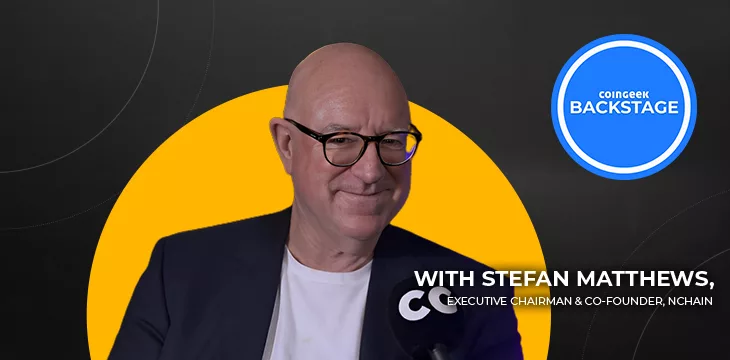|
Getting your Trinity Audio player ready...
|
The Philippines is a prime market for emerging technology solutions, nChain’s Co-founder and Executive Chairman Stefan Matthews told CoinGeek Backstage on the sidelines of the Block Dojo Philippines Investor Dinner.
The Philippines has always been an important region for nChain. In 2023, the blockchain solutions firm announced initiatives supporting the Provincial Government of Bataan in their digitalization efforts, and they also led Block Dojo Philippines, which launched in the country in August.
“The Philippines is and has been for a while now a very important region in terms of nChain’s focus and nChain development of business initiatives,” the chairman said.
One key focus of nChain is building its intellectual property patent portfolio, and parallel to that is digital identity. Over the years, the firm has discussed how digital identity is a core part of Web3. In the country, President Ferdinand “Bongbong” Marcos Jr. signed a New Philippine Passport Act on March 11. In this new law, called the Republic Act No. 11983, the Department of Foreign Affairs (DFA) is mandated to establish and maintain an online application portal and an electronic one-stop shop on its official website.
Asked if this initiative is a possible use case for blockchain and digital identity, Matthews affirmed that it is, adding that he’d want to work in the area, bringing along blockchain in the process. As for the convergence of AI with blockchain, Matthews reiterates that he has a personal interest in the large language model’s (LLM) potential and has been studying it over the years.
“I came to the conclusion that there was a natural connection between the two—and the natural connection is data. Blockchains are about data: data integrity [and] data immutability. AI requires large data volumes to be able to make decisions and predictive outcomes,” he told CoinGeek Backstage.
“I arrived early today, and I was talking to some people involved in the academic arena. Naturally, we started talking about blockchain, and I brought up AI because we talked a year ago about being able to do something unique here in the Philippines and through the Dojo process—that’s why we’re here tonight to close off cohort one—developing technology solutions for the Philippines and for the world.”
“I want to see, whether it’s in the second or third cohort, I want to see the marriage of blockchain and AI coming through the innovators of this country.”
Block Dojo Philippines has reached a significant milestone as the first set of cohorts with RealFlip, FleetHive, and APDXS graduated at the much-anticipated Block Dojo Philippines Investors Night. To learn more about the Block Dojo Philippines Cohort 1 startups, check out our previous coverages here.
In order for artificial intelligence (AI) to work right within the law and thrive in the face of growing challenges, it needs to integrate an enterprise blockchain system that ensures data input quality and ownership—allowing it to keep data safe while also guaranteeing the immutability of data. Check out CoinGeek’s coverage on this emerging tech to learn more why Enterprise blockchain will be the backbone of AI.
Watch Block Dojo Philippines: Pushing startup boundaries to create solutions

 03-01-2026
03-01-2026 




